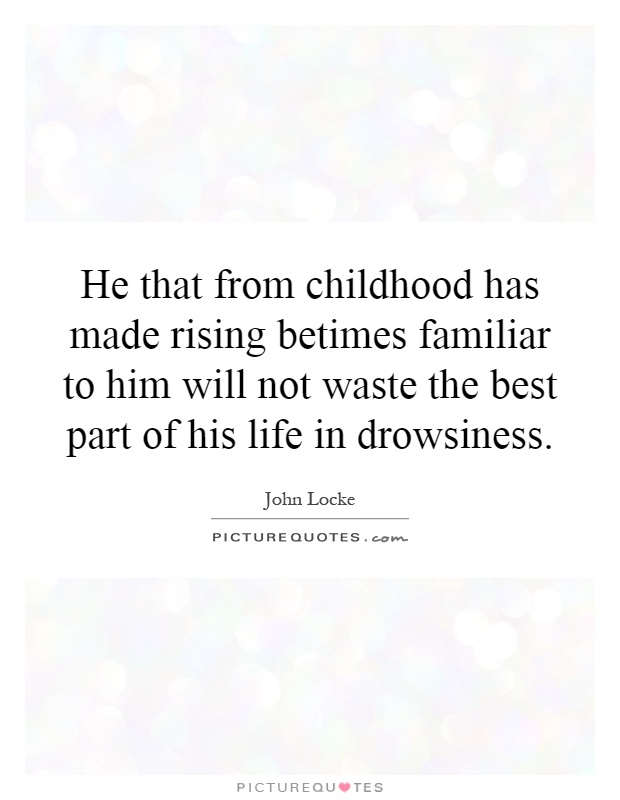He that from childhood has made rising betimes familiar to him will not waste the best part of his life in drowsiness

He that from childhood has made rising betimes familiar to him will not waste the best part of his life in drowsiness
John Locke, a prominent English philosopher of the 17th century, is known for his contributions to the fields of epistemology, political theory, and education. One of Locke's key beliefs was the importance of early childhood experiences in shaping an individual's habits and character. In his famous work, "Some Thoughts Concerning Education," Locke emphasizes the significance of instilling good habits in children from a young age, including the habit of rising early in the morning.Locke believed that the early years of a child's life are crucial for laying the foundation for their future success and happiness. He argued that habits formed in childhood have a lasting impact on an individual's behavior and character. In the quote, "He that from childhood has made rising betimes familiar to him will not waste the best part of his life in drowsiness," Locke is highlighting the importance of starting the day early and being productive from the beginning.
According to Locke, a person who is accustomed to waking up early in the morning will be more likely to make the most of their time and not waste precious hours in laziness or drowsiness. By developing the habit of rising early, individuals can seize the day and accomplish more in their lives. This idea aligns with Locke's broader philosophy of self-improvement and personal responsibility.
Furthermore, Locke believed that education should focus on cultivating virtues and good habits in children, rather than just imparting knowledge. By teaching children the importance of discipline, hard work, and perseverance, parents and educators can help them become responsible and successful individuals. Rising early in the morning is just one example of a good habit that can have a positive impact on a person's life.












 Friendship Quotes
Friendship Quotes Love Quotes
Love Quotes Life Quotes
Life Quotes Funny Quotes
Funny Quotes Motivational Quotes
Motivational Quotes Inspirational Quotes
Inspirational Quotes